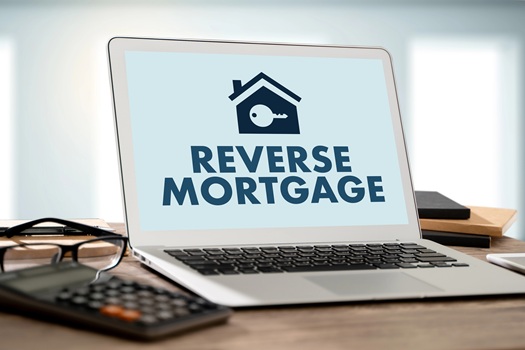
A reverse mortgage is a financial option that lets homeowners, at least age 62, to change part of their home equity into cash. This loan can provide either a lump sum, monthly payments, or a line of credit to supplement retirement income. While it can be a valuable resource, reverse mortgages come with important rules, responsibilities, and potential impacts on your finances. Before committing, it’s essential to ask the right questions with your loan officer. Here are seven key questions to guide your decision.
- 1. Why do I need to undergo counseling before applying for a reverse mortgage?
- 2. What happens to my home after I pass away? Does my spouse get to keep it?
- 3. What are the upfront and ongoing costs associated with a reverse mortgage?
- 4. How will a reverse mortgage affect my other benefits like Social Security and Medicare?
- 5. What are my reverse mortgage payment options?
- 6. Can I pay off the reverse mortgage early? If so, are there penalties?
- 7. What are my obligations as the homeowner?
- Why asking these questions matters
1. Why do I need to undergo counseling before applying for a reverse mortgage?
Asking about the required counseling session ensures you fully understand the process. Additionally, counseling is designed to protect borrowers by explaining all the risks, costs, and obligations associated with the loan. It also explores alternative options that might better suit your retirement plan. As a result, completing this step helps you make a well-informed decision and ensures that you’re not entering into the loan agreement without knowing exactly how it works.
2. What happens to my home after I pass away? Does my spouse get to keep it?
This is an essential question for married homeowners in Myrtle Beach SC. If both spouses are listed on the reverse mortgage, the surviving spouse can remain in the home, and repayment will not be required until they pass away or move out. If only one spouse is on the loan, the surviving spouse may need to pay off the loan to keep the house, often by refinancing or using other assets. Understanding this detail ensures your family can stay financially secure and in the home if something happens to you.
3. What are the upfront and ongoing costs associated with a reverse mortgage?
Knowing the costs helps you budget effectively and avoid unexpected surprises. For example, reverse mortgages often include several fees and charges. These may include origination fees, which cover the cost of setting up the loan. Also, mortgage insurance premiums protect the lender. You will also find servicing fees for ongoing loan management. Finally, interest charges add to the balance over time.
These costs reduce your home equity in Myrtle Beach SC, so discussing them upfront with your loan officer will help you understand how they impact your long-term financial picture.
4. How will a reverse mortgage affect my other benefits like Social Security and Medicare?
Generally, this mortgage does not affect Social Security or Medicare because these programs are not income-based. However, income-based benefits like Medicaid or Supplemental Security Income (SSI) could be impacted if the money from the loan increases your countable income or assets. Your loan officer and a financial advisor can help you understand how to avoid jeopardizing these benefits.
5. What are my reverse mortgage payment options?
 Reverse mortgages in Myrtle Beach SC
Reverse mortgages in Myrtle Beach SCYou have several options for how to receive the funds from a reverse mortgage. To begin with, you can choose a lump sum, which provides all the cash upfront. In addition, monthly payments give you a steady stream of supplemental income. Alternatively, you might prefer a line of credit, which allows you to withdraw funds only when needed. Finally, some borrowers choose a combination of these options for greater flexibility.
Each option affects interest accumulation differently. Discussing payment plans with your loan officer ensures you choose the method that best fits your retirement strategy.
6. Can I pay off the reverse mortgage early? If so, are there penalties?
Moreover, many homeowners want the option to pay off the loan early if they sell the home or receive additional funds. Therefore, it is important to ask whether there are any prepayment penalties. Additionally, find out how an early payoff affects interest and fees. By doing so, you gain more control and flexibility over your financial future.
7. What are my obligations as the homeowner?
Even with a reverse mortgage in Myrtle Beach SC, you remain responsible for:
- Paying property taxes
- Maintaining homeowners insurance
- Keeping the home in good condition
Failing to meet these obligations could lead to loan default and even foreclosure. Asking this question ensures you understand your responsibilities and can maintain compliance to stay in your home.
Why asking these questions matters
By asking these questions, you gain a clear understanding of how this mortgage works, how it impacts your finances, and how it fits into your retirement plan. Knowledge is your best tool for protecting your home and your future.
At David Stacy Reverse Mortgage Specialist, we guide homeowners through every step of the mortgage process. Our loan officers provide expert advice tailored to your financial needs, helping you unlock your home’s equity with confidence.
Call David Stacy Reverse Mortgage Specialist today to schedule a consultation and see if a reverse mortgage is the right solution for your retirement goals.


 Reverse mortgage in Myrtle Beach SC
Reverse mortgage in Myrtle Beach SC
 reverse mortgage in Myrtle Beach SC
reverse mortgage in Myrtle Beach SC
 Reverse mortgage in Myrtle Beach SC
Reverse mortgage in Myrtle Beach SC